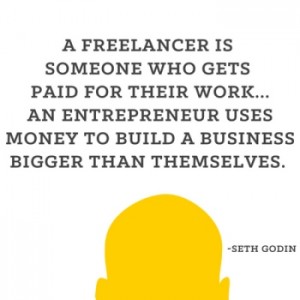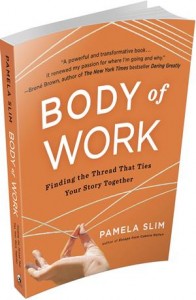Am I a freelancer or an entrepreneur? Contrary to what I thought I am probably in the first category. And before that realization I had some difficult moments – I should not believe I am an entrepreneur while I am just an elaborate freelancer. And that might just be good news that I just get this realization now.
 I had this realization listening to Seth Godin in a Skillshare class on entrepreneurship. This issue is actually explained at length in Seth’s post “The Difference Between a Freelancer and an Entrepreneur”.
I had this realization listening to Seth Godin in a Skillshare class on entrepreneurship. This issue is actually explained at length in Seth’s post “The Difference Between a Freelancer and an Entrepreneur”.
Seth Godin goes on to explain:
- If you’re a freelancer:
- Ensure a steady stream of work
- Create an environment where you don’t go crazy and melt because of overwork
- Consistently increase the quality of your work and generate a waiting list for your time (and increase your prices) (at the same time).
- Scaling will be limited, linear and occur through the hiring of a limited number of additional partners
- If you’re an entrepreneur:
- you look for an exponential scaling of your business, so:
- Relentlessly hire people to delegate work to
- Give yourself a promotion so you are constantly doing work you’re unable to hire anyone else to do
- Build an organization that has the cash flow to permit you to do those two things…
The business I am building in consulting, focusing on high-end specialized consulting, without an army of junior consultants, will not scale exponentially. It does not mean that it cannot influence deeply and leave an imprint in the world. It means I should not be frustrated for lack of (exponential) growth but focus on developing the contents and depth of intellectual property, and grow linearly by recruiting a number of partners.
This difference between (elaborate) freelancer and entrepreneur is fundamental. When I look around I realize how many people call themselves entrepreneurs when they are freelancers. It’s trendy to be an entrepreneur but in truth there are not so many around.
Maybe someday I will venture into real entrepreneurship, building a product that has the capability to scale. Now, I focus on developing my business brand with a better understanding of what it entails in terms of business model. And with more excitement than ever.











